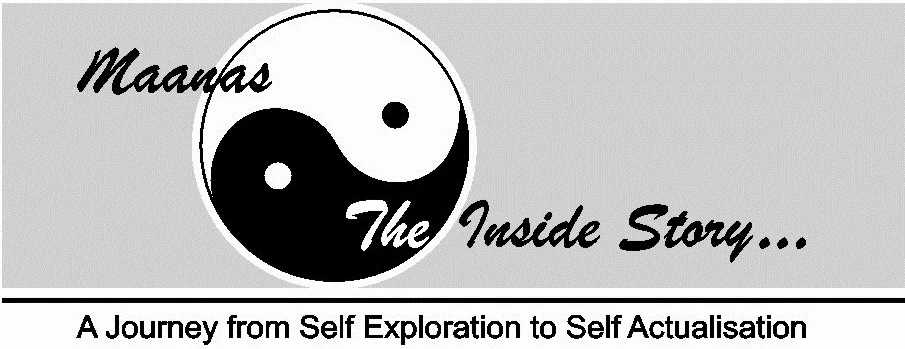
The Psychodrama Method in Action
As a lover and student of psychodrama, I am sharing with all of you my understanding of the three phases and five elements of psychodrama, as I have experienced them in action.
The Three Phases of Psychodrama
The entire discipline of Psychodrama is like an umbrella and has a couple of distinct aspects like sociometry, sociodrama, group processes, social atom and role theory which are very important. Within this umbrella, the word psychodrama is also used for each piece of work/personal enactment that any group member (called the protagonist) takes up so that they see and work through an issue. With a psychodramatist directing the group, the entire process goes through 3 phases. The Warm up Phase where the Director uses various sociometric techniques to help the group understand the configuration of the members gathered on that day. These warm up techniques could be based on the theme that has been chosen for exploration on a particular day or time. Eg. If a group of managers has gathered to understand and strengthen their relationship with giving and receiving critical feedback then the warm ups are around their managerial experiences so far or what feedback means to them or what has been their life experience with criticism, what kind of mirroring has helped them in life and so on. These relevant warm ups not only help members to warm up to the topic and help them get better connected with others, they very often motivate one or more members of the group to explore an area or an issue in depth. In personal development groups, there could be group meetings without a stated theme to start with. During such a group, generic warm ups are used which would help group members to get in touch with what might be going on in their emotional and/or thought world. These warm ups help group members get in touch with anything significant that they might want to work through and/or explore.
The psychodrama process then moves to its second phase known as the Action Phase.
Five Elements of Psychodrama
The warm up aids the process of wanting to work on their issues in the members and one member chooses to enact their drama, this member is called the Protagonist. During the Action Phase, the protagonist moves in front of the group. The Protagonist is one of the five major elements of psychodrama. While this group member does his/her own work, due to the tele factor, the entire group benefits from their work.
With the protagonist’s movement to the front of the group, the dynamics of the group changes for a while. That part of the room which is in front of everyone and where the psychodrama unfolds is called the Stage. The Stage is another major element of the psychodrama method. It is a free space provided within a certain boundary of actual space and time. This makes it safe as it separates that space from real life. This space is also not judged by anyone. Therefore, the Protagonist feels free to explore anything they want, the way they want, without worrying about its consequences in the world outside. For a while with their imagination, they can create a surplus reality to explore those parts of their life that they want to understand, resolve or transform.
The psychodrama method believes that whatever we experience is always in a relationship. During the process of a psychodrama, the protagonist is encouraged to look at the relationships within which certain issues/phenomena are happening and the roles that get played out. To make this experience real, the protagonist choses people from the audience to play auxiliaries. These Auxiliaries are the third major element of the method. They take up different roles such as people in the protagonist’s present, past or future life or any aspects of the protagonist like their fear or anger or a persistent headache and so on.
The Director (Psychodramatist) , which is the fourth major element of the method, uses various techniques like doubling, mirroring, role reversal, future projection, soliloquy, maximising and so on to help the protagonist gain new perspectives about the issue he/she might be dealing with. This gaining of new perspective and a chance to step out of their world provides a rich objectivity to the protagonist. The needed catharsis of abreaction helps to release pent up sensations and feelings and unblock them from the protagonist’s body and being. Finally, the entire experience and the catharsis of integration helps them to integrate the new learning into their active personality.
As this work is going on, the other group members are observing this drama. They may not have been chosen as auxiliaries but are a witness to the journey of the protagonist. They are the Audience – the fifth major element of psychodrama. ‘What would our life be if we had no witnesses to it’. The audience therefore, not only plays the important role of the witness but themselves are moved by the drama. A lot of them connect to different aspects of their own life and struggles and benefit a lot from observing other people’s psychodrama pieces.
Once any piece of work is over, it leads to the final phase of a psychodrama known as the Sharing Phase. Here the Director and Protagonist sit in front of the group, the stage is cleared and all the auxiliaries return back to the audience. Members from the audience and the auxiliaries share with the protagonist what part of their drama touched them and what resonated with their life and being. This sharing is a gift in return to the protagonist who has opened-up their inner world to all the group members. The sharing phase helps the protagonist to also connect back to the group and the here and now reality and slowly they become ready to return back to the group.
As I close my basic understanding of psychodrama with you all, I want to say that to me, just like the Person Centered Approach, the theory of Psychodrama is so profound and all-encompassing that one lifetime is less to fathom the greatness of it all. It is a theory to be experienced and lived in action. I can simply go on and on about the foundational concepts but I would pause here and invite you to experience psychodrama with us.

